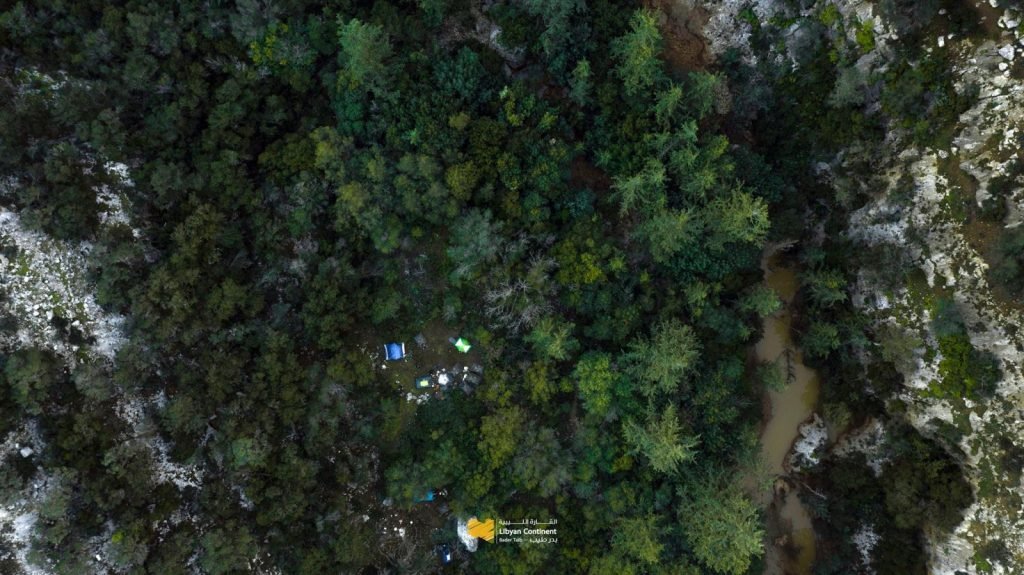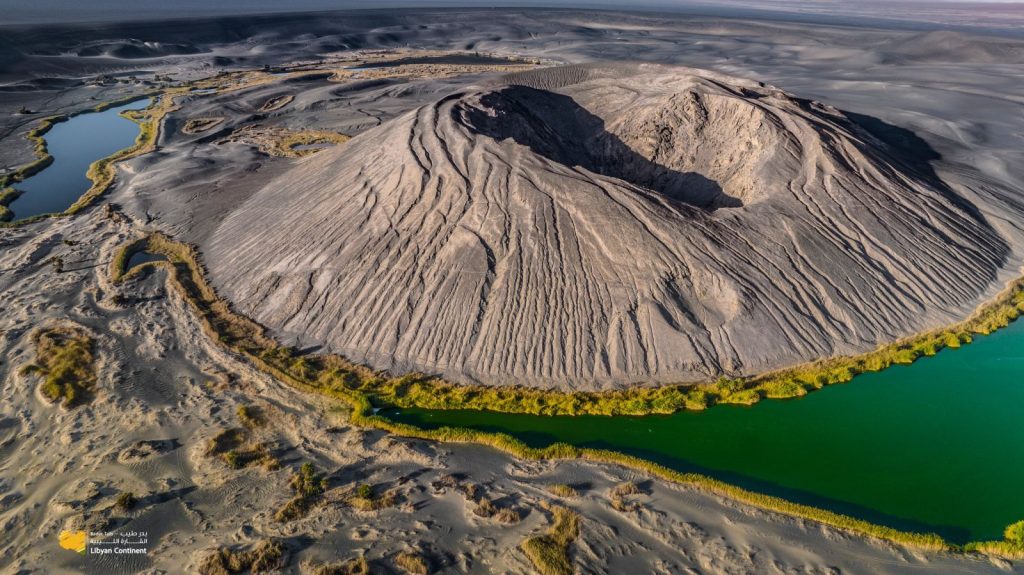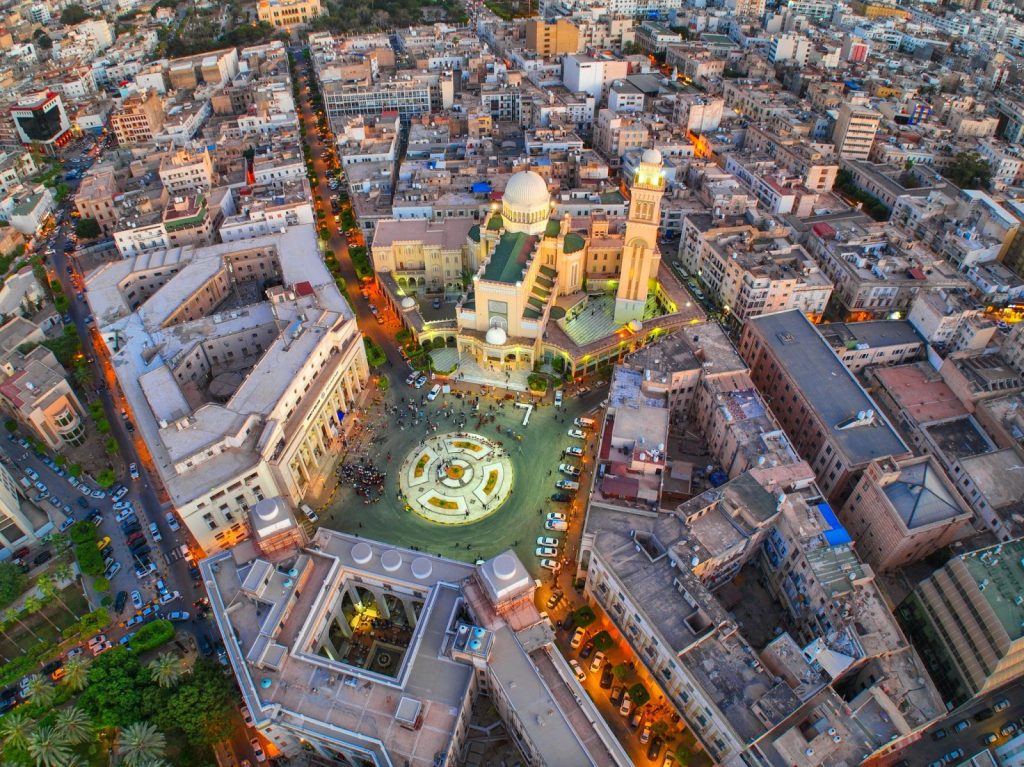In the evolving landscape of environmental sustainability, carbon credits have emerged as a pivotal tool for mitigating climate change. We at Qabas, Libya’s foremost service provider in this arena, are dedicated to guiding businesses and organisations through the complexities of carbon credit systems.
Our expertise lies in developing strategic solutions that not only meet international standards but also drive local innovation. By leveraging our deep understanding of Libya’s unique environmental and economic landscape, we set industry benchmarks and empower our clients to achieve their sustainability goals effectively.
Committed to excellence, Qabas continuously seeks to provide innovative approaches that make carbon credits accessible and impactful. Join us as we lead the charge towards a greener future, ensuring that Libya remains at the forefront of environmental stewardship.

Overview of Carbon Credits
Definition and Mechanism
Carbon credits represent the right to emit one tonne of carbon dioxide (CO₂) or its equivalent in other greenhouse gases. These certificates play a crucial role in cap-and-trade systems and voluntary carbon markets. In Libya, carbon credits allow entities to emit a predetermined amount of CO₂, typically one tonne per credit. We ensure that our approach to carbon credit mechanisms aligns with international standards, providing transparent and reliable services.
Generation of Carbon Credits
Carbon credits in Libya are generated through projects that reduce, avoid, or capture emissions. Key initiatives include:
- Tree Planting: Libya has set a target to plant 100 million trees by 2030. Projects such as the one million tree planting initiative in Tripoli contribute to carbon credit generation through afforestation and forest conservation. Our expertise supports these efforts by managing project implementation and monitoring carbon sequestration effectively.
We specialise in developing projects that meet rigorous criteria for carbon credit generation, ensuring ethical practices and compliance with global regulations.

Carbon Credits in Libya
Libya is progressively developing its carbon credit framework to support environmental sustainability. Our efforts focus on aligning with international standards and fostering local initiatives.
Regulatory Environment
Although Libya has not yet established a fully developed regulatory framework for carbon credits, significant progress is underway. We engage in afforestation, reforestation, and revegetation (ARR) projects that meet international monitoring, reporting, verification, and certification standards[^1][^2]. Collaborations with the European Union through GIZ and UNDP enhance our capacity in renewable energy and energy efficiency, ensuring adherence to global regulatory compliance[^3]. Additionally, the consideration of a national institution dedicated to carbon credit trading aims to streamline the process and facilitate market participation.
Key Stakeholders
Key stakeholders in Libya’s carbon credit landscape include government bodies, international partners, and local communities. We work closely with governmental agencies to support policy development and regulatory alignment. Our partnerships with international organisations, such as the European Union and United Nations Development Programme (UNDP), provide essential funding and expertise. Local communities are integral to the success of ARR projects, and we prioritize their involvement to ensure sustainable and ethical project implementation. By coordinating with these stakeholders, we maintain a trusted reputation and drive impactful environmental initiatives across Libya.
Environmental Impact
Libya’s commitment to carbon credits significantly contributes to environmental sustainability through extensive afforestation and reforestation projects. Our initiatives focus on nature-based solutions that not only generate carbon credits but also enhance biodiversity and combat desertification.
Projects and Initiatives
We are actively involved in multiple projects aimed at generating carbon credits. A cornerstone initiative includes the planting of one million trees in Tripoli, executed in collaboration with local partners. This Afforestation, Reforestation, and Revegetation (ARR) project is designed to absorb over 10 million tons of CO₂ equivalent annually once the trees reach maturity.
Additionally, the Libyan Ministry of Planning has set an ambitious target to plant 100 million trees by 2030. This goal aligns with the National Oil Corporation’s campaigns in Al-Assa and Al-Jufra, reinforcing our nation’s dedication to large-scale environmental restoration.
![Carbon Credits in Libya | Leader in Strategy & Consulting 3 Blockchain Advisory in Libya [FREE 30-Min Consultation]](https://qbs.ly/wp-content/uploads/2024/12/Blockchain-Advisory-in-Libya-FREE-30-Min-Consultation-1024x596.jpg)
Carbon Sequestration and Emission Reduction
Our tree planting efforts play a crucial role in reducing carbon emissions and mitigating the effects of desertification. These initiatives directly support United Nations Sustainable Development Goals (UN-SDGs) 13 (Climate Action) and 15 (Life on Land). By enhancing carbon sequestration, we contribute to lowering the overall carbon footprint and promote sustainable land use practices.
| Project | Trees Planted | CO₂ Absorption (Annual) | Completion Year |
|---|---|---|---|
| Tripoli Afforestation | 1,000,000 | 10,000,000 tonnes | 2025 |
| National Oil Campaigns | 100,000,000 | 1,000,000,000 tonnes | 2030 |
Our role as a Libya-based service provider ensures that these projects adhere to the highest ethical standards. We maintain transparency and integrity in all our operations, fostering trust and reliability in our environmental initiatives.
By leveraging our expertise, we effectively manage carbon credit generation, ensuring compliance with international standards and promoting sustainable practices. Our dedication to environmental stewardship positions us as a trusted leader in Libya’s carbon credit landscape.
Economic Impact
Carbon credits in Libya are poised to drive significant economic growth, leveraging environmental sustainability as a key economic driver. Our initiatives focus on generating and trading carbon credits, which contribute to both national and global carbon reduction targets.
Revenue Generation
The creation and sale of carbon credits present substantial revenue opportunities for Libya. By implementing projects such as the one million-tree plantation in Tripoli, aligned with our goal to plant 100 million trees by 2030, we anticipate generating millions of dollars annually. These funds can be reinvested into further environmental projects and support the national economy.
Job Creation
Our carbon credit projects generate numerous employment opportunities across various sectors. Tree planting initiatives require labour for planting, maintenance, and monitoring, while renewable energy projects create jobs in the installation and management of solar and wind energy systems. Additionally, managing carbon credit transactions necessitates expertise in environmental science, finance, and regulatory compliance.
Investment in Renewable Energy
Investing in renewable energy projects enhances Libya’s energy infrastructure and reduces dependence on fossil fuels. Projects focused on solar and wind energy not only generate carbon credits but also provide stable energy sources, attracting both local and international investors. This investment stimulates economic diversification and fosters sustainable growth.

Technological Advancement
The diversification of carbon credit generation into areas such as CO2 injections into oil formations and industrial wastewater treatment drives technological innovation. By adopting advanced technologies, we improve efficiency and effectiveness in reducing emissions. This technological advancement positions Libya as a leader in sustainable practices, attracting further investment and fostering economic resilience.
International Trade Opportunities
Carbon credits offer Libya the opportunity to engage in international carbon markets. By meeting international standards and certifications, our carbon credits become tradable entities on global platforms. This opens avenues for exporting carbon credits, generating foreign exchange, and strengthening Libya’s position in the global environmental economy.
Infrastructure Development
Developing infrastructure to support carbon credit projects, including renewable energy facilities and reforestation areas, stimulates economic activity. Infrastructure projects require materials, services, and skilled labour, contributing to economic development and enhancing Libya’s capacity to manage large-scale environmental initiatives.
Long-term Economic Sustainability
By prioritising carbon credit initiatives, we ensure long-term economic sustainability. Reducing carbon emissions mitigates the impacts of climate change, safeguarding natural resources and promoting a stable environment for future generations. Sustainable economic practices foster resilience against environmental and economic fluctuations, ensuring continuous growth and prosperity.
Supporting Local Communities
Our carbon credit projects support local communities by providing employment, improving access to clean energy, and enhancing environmental quality. Empowering communities through sustainable projects fosters social stability and economic well-being, creating a positive feedback loop that reinforces economic growth.
| Economic Impact Area | Description |
|---|---|
| Revenue Generation | Millions of dollars annually from carbon credit sales |
| Job Creation | Employment in tree planting, renewable energy, and carbon management |
| Investment in Renewable Energy | Attraction of local and international investors in solar and wind projects |
| Technological Advancement | Adoption of advanced emission reduction technologies |
| International Trade | Export of carbon credits through global carbon markets |
| Infrastructure Development | Growth of renewable energy facilities and reforestation infrastructure |
| Long-term Economic Sustainability | Mitigation of climate change impacts and promotion of stable economic growth |
| Supporting Local Communities | Employment, clean energy access, and improved environmental quality |
Our commitment to ethical practices ensures that all economic benefits are realised transparently and sustainably. As a Libya-based service provider, we uphold the highest standards, fostering trust and integrity in all our carbon credit initiatives.
Challenges and Opportunities
Opportunities
Libya’s carbon credit market presents significant opportunities for environmental and economic advancement. We are diversifying carbon credit generation through multiple methods, including tree planting, natural reserve management, CO₂ injections, renewable electricity generation, urban transport modernization, and industrial wastewater treatment. These strategies enhance Libya’s energy infrastructure and support global emission reduction targets.
| Opportunity | Description |
|---|---|
| Tree Planting | Planting one million trees in Tripoli to generate carbon credits and combat deforestation. |
| Natural Reserve Management | Preserving natural reserves to maintain carbon sinks and biodiversity. |
| CO₂ Injections | Implementing CO₂ injection techniques to capture emissions from industrial processes. |
| Renewable Electricity Generation | Expanding renewable energy sources to reduce reliance on fossil fuels. |
| Urban Transport Modernization | Upgrading urban transport systems to decrease carbon emissions and improve efficiency. |
| Industrial Wastewater Treatment | Treating industrial wastewater to lower greenhouse gas emissions and enhance water quality. |
Our reforestation initiatives aim to plant 100 million trees by 2030, aligning with Libya’s commitment to large-scale environmental restoration. These projects contribute to reducing carbon emissions and mitigating desertification, supporting the United Nations Sustainable Development Goals (UN-SDGs) 13 and 15.
We are committed to achieving net-zero emissions by 2050, in line with the Paris Accord. Our focus on renewable energy projects and energy efficiency measures exemplifies our dedication to sustainable practices. By managing these initiatives, we ensure compliance with global regulations and uphold the highest ethical standards, reinforcing our trusted reputation in the industry.

Challenges
Despite the promising opportunities, Libya’s carbon credit market faces several challenges. The regulatory framework for carbon credits is still under development, posing uncertainties for project implementation and certification processes. Establishing clear and consistent regulations is essential for attracting investments and ensuring the credibility of carbon credit projects.
Infrastructure limitations impede the effective generation and distribution of carbon credits. Developing the necessary infrastructure for renewable energy, emission reduction technologies, and monitoring systems requires substantial investment and technical expertise. Addressing these gaps is critical for the scalability of carbon credit initiatives.
Economic fluctuations and political instability can affect the continuity and sustainability of carbon credit projects. Ensuring long-term financial and operational stability is necessary to maintain progress towards environmental goals. We maintain an ethical stance and transparency in all our operations to mitigate risks associated with these challenges.
Access to financing remains a barrier for many carbon credit projects. Securing funding from international partners and investors is crucial for the advancement of large-scale initiatives. We leverage our strong reputation and trusted relationships to facilitate access to necessary financial resources.
Capacity building and technical expertise are essential for the successful implementation of carbon credit projects. Training local communities and stakeholders enhances their ability to manage and sustain environmental initiatives. We prioritise education and skill development to empower local participation and ensure the effectiveness of our projects.
Addressing these challenges requires a collaborative effort and strategic planning. Our commitment to ethical practices and excellence positions us to navigate these obstacles and seize the opportunities within Libya’s carbon credit landscape.
Conclusion
Embracing carbon credits positions Libya at the forefront of environmental sustainability. We are committed to advancing initiatives that not only reduce emissions but also foster economic growth. Through strategic collaborations with government bodies international partners and local communities we ensure our projects are both ethical and impactful. Leveraging local innovation and global expertise Qabas is making carbon credits more accessible and effective. Our dedication to transparency and excellence drives us to support a greener future that benefits both the environment and our society. Together we can achieve significant progress in combating climate change and promoting sustainable development in Libya.
Frequently Asked Questions
What are carbon credits?
Carbon credits represent the right to emit one tonne of carbon dioxide (CO₂) or its equivalent in other greenhouse gases. They are essential in cap-and-trade systems and voluntary carbon markets, allowing entities to manage their carbon emissions by either reducing their own emissions or purchasing credits from projects that decrease, avoid, or capture emissions.
How does Qabas support businesses with carbon credits?
Qabas assists businesses in navigating carbon credit systems by developing strategic solutions that align with international standards. They manage initiatives such as afforestation and renewable energy projects, ensuring compliance and fostering local innovation. Qabas aims to make carbon credits more accessible and effective, helping clients achieve their sustainability goals.
What are Libya’s key carbon credit initiatives?
Libya is focusing on extensive afforestation and reforestation projects, including planting one million trees in Tripoli and a national target of 100 million trees by 2030. These initiatives aim to absorb significant CO₂ emissions, combat desertification, and enhance biodiversity. Additionally, Libya is developing its carbon credit framework to align with international standards and support local environmental projects.
What economic benefits do carbon credits bring to Libya?
Carbon credits can drive economic growth in Libya by generating revenue from their sale, creating jobs across various sectors, and attracting investments in renewable energy projects. They also promote technological advancements in emission reduction and open opportunities for international trade through global carbon markets, contributing to long-term economic sustainability.
What challenges does Libya face in its carbon credit market?
Libya’s carbon credit market faces challenges such as an underdeveloped regulatory framework, limited infrastructure, economic fluctuations, and difficulty accessing financing. Additionally, there is a need for capacity building and technical expertise to empower local communities and ensure the successful implementation of carbon credit initiatives.
How does Qabas ensure ethical project implementation?
Qabas maintains transparency and integrity in all operations by adhering to the highest ethical standards. They work closely with governmental agencies, international partners, and local communities to ensure sustainable and ethical project implementation. This includes compliance with global regulations and fostering local innovation.
What is the role of tree planting in Libya’s carbon credit strategy?
Tree planting is a cornerstone of Libya’s carbon credit strategy, with projects aimed at afforestation and reforestation to absorb CO₂ emissions and combat desertification. Notable initiatives include planting one million trees in Tripoli and a national goal of 100 million trees by 2030. These efforts support biodiversity and align with the United Nations Sustainable Development Goals.
How is Libya aligning its carbon credit framework with international standards?
Libya is progressively developing its carbon credit framework to meet international standards by implementing projects that adhere to global monitoring and certification criteria. Collaborations with the European Union and UNDP enhance Libya’s capacity in renewable energy and energy efficiency, while efforts to establish a national institution for carbon credit trading aim to streamline processes and facilitate market participation.
What are the long-term benefits of prioritising carbon credit initiatives in Libya?
Prioritising carbon credit initiatives ensures long-term economic sustainability by fostering resilience against environmental and economic fluctuations. It supports local communities through job creation and improved access to clean energy, promoting social stability and economic well-being. Additionally, it positions Libya as a leader in environmental stewardship, enhancing its reputation on the global stage.
How does Qabas collaborate with stakeholders in Libya’s carbon credit landscape?
Qabas collaborates with government bodies, international partners, and local communities to support policy development and regulatory alignment. Partnerships with organisations like the European Union and UNDP provide essential funding and expertise, while engaging local communities ensures sustainable and ethical project implementation, fostering a collaborative approach to environmental sustainability.
What future prospects exist for Libya’s carbon credit market?
Libya’s carbon credit market has significant potential for environmental and economic advancement through diverse strategies such as tree planting, renewable energy, and modernised urban transport. As the regulatory framework matures and infrastructure improves, opportunities for international trade and investment will increase, positioning Libya as a key player in the global carbon market.
How do carbon credits contribute to the United Nations Sustainable Development Goals?
Carbon credits contribute to the UN Sustainable Development Goals by supporting Climate Action (Goal 13) and Life on Land (Goal 15). Projects like afforestation and renewable energy reduce carbon emissions, enhance biodiversity, and combat desertification, aligning with global efforts to achieve sustainable development and environmental protection.




